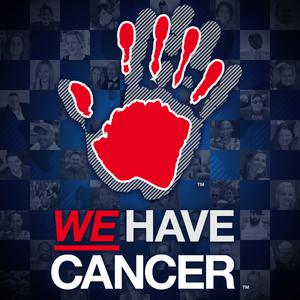
WE Have Cancer
Lee Silverstein
Providing information, inspiration and hope to those touched by cancer.
- 1 hour 14 minutesFinal Episode Honoring Lee
Welcome everyone to the final episode of the We Have Cancer podcast. Glenn Hebert from the Horse Radio Network and Katie Krimitsos of the Women’s Meditation Network pay tribute to Lee Silverstein. For those of you that may not have heard, we lost Lee a few weeks ago and we wanted to do one final episode on the We Have Cancer podcast to honor what he meant to the cancer community and also to the podcast community.
Katie and I will talk a bit about our time with Lee and then we want to play for you one of the final interviews that Lee did with the Man up to Cancer podcast where he talked about dying, hospice and how he was at peace.
Rest in Peace Lee, we all love you!
28 February 2024, 8:27 pm - 29 minutes 18 secondsTim McDonald Is Fighting Colon Cancer and Is In Search of a Liver Donor
My buddy, Tim McDonald, joins me to share his story of dealing with stage 4 colon cancer and is journey to find a liver donor.
Please help spread Tim's message by sharing this link: http://timsliver.com/
Follow Tim here:
On Twitter: twitter.com/tamcdonald
On Instagram: instagram.com/timamcdonald
On LinkedIn: linkedin.com/in/timamcdonald
11 July 2022, 8:01 am - 27 minutes 45 secondsColon Cancer Survivor Michael Riehle on the HAI Pump and Life With N.E.D.
Michael Riehle joins Lee to discuss his journey with colorectal cancer, the challenges of living NES (No Evidence of Disease) and the value of the Man Up to Cancer; The Howling Place Facebook group.
28 June 2022, 8:01 am - 26 minutes 40 secondsResearching Your Cancer Treatment Options and Overcoming Logistical Obstacles
Lee provides an update on his treatment and shares exciting news. He discusses researching your treatment options and how to make treatment at a long distance facility a reality.
7 June 2022, 8:01 am - 12 minutes 51 secondsThe Final Episode
Welcome to episode #188, the final episode of the WE Have Cancer podcast.
19 October 2021, 8:01 am - 34 minutes 45 secondsDavid Richman Lost his Sister to Brain Cancer and Continues to Fight in Her Memory
On this episode of WE Have Cancer, motivational speaker and endurance athlete David Richman shares with Lee how cancer first touched his life through his late sister, June. To honor her legacy, David has completed countless races in search of connection, emotion, and perspective.
Guest Biography:
David Richman is an, author, entrepreneur, speaker, consultant and philanthropist. But before any of that, he was a brother to June. In 2007 June was battling her final stages of brain cancer, and David was ready to run beside her during Relay for Life. June passed away just days before the race, but David still went and ran. His experience at that race sparked a new passion in him for endurance sports for a cause. In the last decade, he has completed over 50 triathlons, over 50 runs longer than marathon length, and most recently, he biked 4,700 miles cycling across the country to interview participants for his new book exploring the emotional side of cancer, Cycle of Lives.
Table of Contents:
- David's Story Begins with June
David's sister June received news that she had serious brain cancer in her forties, and that it was most likely terminal. Her diagnosis changed everything. She was the impetus to David's project and nonprofit work, and remains his constant inspiration.
- What Would June Think of David's Work?
June said the thing that sucked the most about her cancer was that she wouldn’t get to see her kids grow up. Through David's work, June is not forgotten, and her kids get to see her legacy continue to inspire connection.
- 5000 Miles on a Bike, Searching for Answers
Inspired by June’s Relay for Life team in 2007 (called the June Buggies), David promised her he would run right alongside her. But June passed away just a few days before the race. Over time, David wanted to meet and interview all these people touched by cancer and bring them together. So he hopped on a bike and went city to city in a matter of six weeks.
- There's So Much Hope
Lee asks, was the biggest surprise while working on Cycle of Lives? David says he went into the project thinking it would be dark and heavy all the time, but he was surprised and inspired to find how hopeful and wise so many people were along the way.
- Seeking Connection Drives Everything
How did David learn to dig deep and lean into these meaningful (and often challenging) conversations? He says he loves “trying to figure the puzzle out” when interviewing people, and finds true joy in doing so.
- “I was always on the outside looking in.”
In his book Cycle of Lives, he talks a bit about how up until his thirties he felt like he was never the main character of his own story. He wanted to get out of the shadows and capture stories that would spread light, emotion, and inspiration, just like June.
- Why the Bike Ride, Instead of Picking Up the Phone?
Dave says, “I think we’re all connected by stories, and we’re connected by emotion.” To him it felt natural and obvious to jump on his bike and ride from city to city to string everything together.
- "June got me through it."
David learned, over the course of the physically and emotionally challenging journey, that he was never running away from anything. He was always running toward the next great story, and that brought him peace, joy, and connection along the way.
- Being Touched By Cancer Changed Him
Dave shares how much he’s learned about perspective and authenticity. He learned that it’s okay for people to care for him, and to care about him. And he learned that he can’t be afraid to say something and make a new connection.
- But what if I Say the Wrong Thing?
Too often, we can let our own discomfort be the barrier between making meaningful connections. David says, who has time for that? He’d rather push through the discomfort and form that bridge of human emotion, gratitude, and connection together.
Links mentioned in the show:
Get David's Book - Cycle of Lives
Follow David's Journey - David Richman
Support the Child of the Month; Kaden - https://wehavecancershow.com/kaden
Subscribe to the “WE Have Cancer” Podcast
Follow WE Have Cancer on Social Media:
Like our Facebook page
Follow us on Twitter
Follow us on Instagram
5 October 2021, 8:01 am - 29 minutes 50 secondsDiagnosed with Stage IV Ovarian Cancer at Age 30: Morgan Gaynor's Journey & Advocacy
On this episode of WE Have Cancer, awareness advocate and ovarian cancer survivor Morgan Gaynor chats with Lee about cancer research, advocacy, and sharing her cancer journey online in a very public way.
Guest Biography:
After completing her MBA at Monmouth University at age 30, Morgan decided to look into freezing her eggs. That decision would ultimately lead to her ovarian cancer diagnosis and save her life. Immediately after her diagnosis with low-grade serous ovarian carcinoma, she began sharing her story online on her website, Morgan Beats Cancer. Now a year and a half after her last chemo session, she currently serves on the board of STAAR Ovarian Cancer Foundation, and advocates on the federal, state, and local levels on behalf of ovarian cancer patients for increased research funding.
Table of Contents:
- The Story Behind "Morgan Beats Cancer"
Morgan says naming her site was a big decision and conversation with family. It’s not just about beating cancer herself; Morgan says her goal is to beat ovarian cancer for everyone.
- Sharing Her Cancer Journey with the World
At the time of her diagnosis, Morgan was four months out from her MBA graduation where she studied Communications. Her whole life Morgan has been an eager philanthropist and volunteer, and now she’s taking all of her skills and passions into the cancer world via her website and advocacy work.
- Diagnosed with Ovarian Cancer Pre-Menopause
She first posted on Facebook about her ovarian cancer diagnosis, and how it wasn’t common for a woman in her early thirties to be diagnosed with it. She wanted to raise awareness that cancer can happen at any age. Morgan says, “If you’re born with ovaries, you’re at risk for ovarian cancer.”
- From Freezing Eggs to Finding Ovarian Cancer
After watching friends struggle with fertility in their twenties and thirties, Morgan decided she wanted to have her eggs frozen at age 30. At Morgan’s first ultrasound with the fertility specialist, they noticed several large lumps in Morgan’s pelvic area. A few weeks later, a surgeon confirmed the lumps were malignant, and she was diagnosed with stage four ovarian cancer.
- Treatment Options for Ovarian Cancer
Morgan says surgery was definitely the recommended immediate course of action for her. She had a debulking surgery first to remove all visible signs of disease, and then went through six rounds of chemotherapy afterward.
- Life After Cancer Treatment
Morgan’s final chemo session was in February 2020. She now takes a daily estrogen blocker because her particular strain of cancer was hormone-driven. She says she feels great.
- “My whole life is different now.”
Between cancer and the pandemic, Morgan says she’s home much more than she used to be. She still spends time volunteering in her community, and she’s doing a lot with the ovarian cancer community as well. She joined the board of STAAR Ovarian Cancer Foundation, and is an advocacy leader with OCRA (Ovarian Cancer Research Alliance).
- Getting Involved with Cancer Research Advocacy
Morgan says getting to speak with her state representatives and telling people how important cancer research is has been both enlightening and fulfilling. She reminds listeners that the only way to conquer these diseases is through research, which requires funding, which largely comes from the government.
- Being Immunocompromised in 2021
Morgan’s treatment has left her permanently immunocompromised. She says that before the pandemic, getting onto a subway during cold and flu season would be terrifying for someone like her. But now, wearing a mask in public is no big deal.
- Grappling with Confidence after Cancer Treatment
Morgan says she’s found immense support with other women in the community, particularly from a local organization in New Jersey called Mary’s Place by the Sea, where they’re each encouraged to write letters to themselves about gratitude, acceptance, and love for their healing bodies.
- Morgan's Longterm Cancer Advocacy Vision
Morgan says she plans to continue to use her website to advocate for people facing cancer, especially ovarian cancer. She hopes to also provide advice and tips for supporting people with cancer, because she knows how difficult it can be.
Links mentioned in the show:
Follow Morgan's Advocacy - Morgan Beats Cancer
Support the Child of the Month; Kaden - https://wehavecancershow.com/kaden
Subscribe to the “WE Have Cancer” Podcast
Follow WE Have Cancer on Social Media:
Like our Facebook page
Follow us on Twitter
Follow us on Instagram
21 September 2021, 8:01 am - 35 minutes 47 secondsFinding Healing and Joy in Baseball, with Hodgkin’s Survivor Katie Russell Newland
On this episode of WE Have Cancer, author and cancer survivor Katie Russell Newland chats with Lee about baseball, family, cancer, and learning to live in the moment. Katie shares how baseball was a special bond between her and her mother growing up. Three years after her mom lost her own battle with Colon Cancer, Katie was diagnosed herself. Two years later, Katie decided to dust off their old dream of road tripping to every ballpark in the country. Her journey later inspired her memoir, A Season with Mom: Love, Loss, and the Ultimate Baseball Adventure.
Guest Biography:
Katie Russell Newland is a writer and sports enthusiast with a PhD in language and literacy from the University of Texas at Austin. A survivor of both Hodgkin’s lymphoma and melanoma, she is now in remission and lives with her family in Austin, Texas. When she’s not watching sports or her favorite teams play (Chicago Cubs, New Orleans Saints, and Texas Longhorns), she can be found at a music festival, hosting a board game night, or playing pickleball.
Table of Contents:
- Just Me, Mom, and Baseball
Katie shares that her favorite baseball memories with her mom are the quiet moments watching baseball together at home, "just letting baseball do the talking." At their first Cubs game together, her mom had the idea to go and see all 30 ballparks together, just the two of them.
- "My Mom's Strength Gave Me Strength"
When her mom passed away, Katie stepped away from baseball for a while because it hurt so much to have to experience the game without her. Then, when Katie was diagnosed with Hodgkin's lymphoma and melanoma three years later, she reflected a lot about her mom’s strength and her own journey.
- Mom's Dream Came Alive Again
A year after her cancer treatment, Katie was diagnosed with a rare complication called Lhermitte's Sign, where radiation from her neck and chest crept in to her spinal cord, making it a challenge to take a single step. A year later, her mom's old idea came back: Katie wanted to see every ballpark, just like they'd planned.
- 108 Years of Patience
Watching the Cubs win the World Series in 2016 was magical, Katie says. Her mom wasn't around to see it, so Katie made sure to stay home alone, without distractions, to watch them win. She wanted it to be just her and her mom again, and she knows she felt her presence with her there.
- "I Wanted to Live in the Moment"
When Katie started her baseball journey she says she had no intention of writing a book; she started it as part of her own healing journey and a way to feel closer to her mom again. The book came a few years later.
- Living Her Dream, Twice
Then, Katie shares, reflecting back on her baseball journey to write the book was a whole separate journey in itself. She looked across thousands of photos from the trip, this time examining them from the perspective of a qualitative researcher. She was able to process the experience in a whole new way.
- Letting Go of Control
Katie says she learned a lot from cancer about letting go and learning to release the need to control. And she tried to carry those lessons with her while traveling to all 30 ballparks, which opened the door to even more special moments along the way.
- Somehow, Word Began to Spread
Katie believes her story spread organically; she remembers one article that came out on the Huffington Post, and says it spiraled from there. She began to realize that her story was really resonating with people.
- How to Plan a Trip to 30 Ballparks
Katie laughs and shares how everything from spreadsheets, rain delays, and meditation sessions helped keep her organized along the way. The biggest travel stretch was over the 4th of July, where she went to a lot of east coast games.
- My Friend, Peyton Manning
Katie grew up across the street from Peyton Manning, and they also went to high school together in New Orleans. She says her house had a better yard, and he and his brothers often came over to her house to play football. When she went through her cancer treatment, Peyton sent her a letter to say that he was thinking about Katie and her mom.
Links mentioned in the show:
Get Katie Russell Newland's Book - A Season with Mom: Love, Loss, and the Ultimate Baseball Adventure
Support the Child of the Month; Kaden - https://wehavecancershow.com/kaden
Subscribe to the “WE Have Cancer” Podcast
Follow WE Have Cancer on Social Media:
Like our Facebook page
Follow us on Twitter
Follow us on Instagram
7 September 2021, 8:01 am - 33 minutes 12 secondsHow to Find Peace and Comfort in the Face of Death, with Dr. Jim deMaine
On this episode of WE Have Cancer, author and veteran physician Jim deMaine chats with Lee about facing death with peace and comfort. Dr. deMaine shares his knowledge on hospice and palliative care and the rights every patient should be informed on in regards to medical care at the end of their life. He also provides thoughtful advice for how patients and their family members can best prepare for their final days.
Guest Biography:
Dr. Jim deMaine is a pulmonary and critical care specialist passionate about educating folks about the options they face towards the end of their lives. He is the author of Facing Death: Finding Dignity, Hope and Healing at the End, in which he shares his wisdom and field experience to explore common questions and anxieties his patients have experienced in their final days. He does not shy away from conversations about the role of spirituality, leaving a moral legacy, cultural traditions, and even conflicts between patients and their doctors.
Table of Contents:
- Saying the Words "Death" and "Cancer"
At the start of the show, Lee asks why a pulmonary care doctor decided to write a book on death. When Dr. deMaine was training as a physician in the 1960’s, he says they were trained to avoid talking about death or even using the word “cancer,” and he knew he wanted to change that.
- A Patient's Rights at the End
How do practitioners let their patients know that they have the right to make determinations about the kind of care they’d like to have at the end of their lives, and how can their doctors inform them about technologies available to them? Dr. deMaine discusses the many rights and conversations patients can, and should, be having with their doctors about end-of-life care.
- How to Put Families More at Ease
Families feel better about conferences when the doctor listens more, allowing them to feel more understood, explains Dr. deMaine. He also talks about some touching notes and feedback he’s received over the years from patients and their families that have helped to teach him how best to comfort and inform loved ones.
- Leading the Conversation to Discuss Death
Lee asks, why is what Dr. deMaine does “out of the ordinary” compared to standard practices of physicians in general? He shares about an app created for doctors called Vital Talk that coaches doctors on how to listen and approach these kinds of discussions, rather than sweeping them under the rug. There’s even a COVID-specific part.
- Learn about Hospice Before Needing Hospice
Dr. deMaine says patients should be informed about hospice options prior to needing hospice care themselves. Often, he says, people wait too long to consider hospice. How can patients begin to think about that level of special care earlier on?
- Benefits of Hospice Care
More than 50% of cancer patients receive hospice care at the end of their lives, and the data shows that people that enter hospice care have longer lives. Dr. deMaine admits that entering into hospice care is “quite a shift,” and is a decision that should be carefully considered.
- Palliative Care vs. Hospice
What’s the difference between palliative care and hospice? Dr. deMains says palliative care is a specialty that means “relief of suffering,” and palliative specialists work with both hospice and non-hospice patients. It’s a big picture, more coordinated approach to relieving suffering and bringing in more comfort to patients with serious and terminal illnesses.
- Dying with Peace and Comfort
Lee asks Dr. deMaine to explain the fine line between physician assisted suicide (or medical aid in dying) and helping a patient die in comfort. He says that when the intent is to relieve suffering, there are many options and medications to help provide comfort in a patient’s final days or hours. In areas where medical aid in dying is legal, Dr. deMaine explains what the process can look like for patients that do make that choice.
- Approaching a Terminal State: What Patients Should Know
Dr. deMaine says he wish more patients knew they have a right to request palliative care, and they a right to have an advocate with power of attorney to speak on their behalf regarding healthcare. He believes they should be thoroughly informed about hospice care. And lastly, they should think about their loved ones and pray for a peaceful death.
- Advice for Family Members Providing Comfort
Dr. deMaine shares that his father was a family physician, and he would always say "the answer is L-O-V-E." For loved ones, he advises simply holding their hand, being with them, playing their favorite music, and looking at pictures. Spend time together to bring comfort and peace.
Links mentioned in the show:
Get Dr. Jim deMaine's Book - Facing Death: Finding Dignity, Hope, and Healing at the End
Support the Child of the Month; Charlie - https://wehavecancershow.com/charlie
Subscribe to the “WE Have Cancer” Podcast
Follow WE Have Cancer on Social Media:
Like our Facebook page
Follow us on Twitter
Follow us on Instagram
24 August 2021, 8:01 am - 36 minutes 28 secondsAll About Belong.Life: A Free, Anonymous App for the Cancer Community
On this episode of WE Have Cancer, Oncologist Dr. Daniel shares how the free Belong.Life app is changing the lives of cancer patients and caregivers around the world. Belong.Life is both a social and professional network for managing and navigating treatments, with a mission to improve the quality of life and the quality of cancer care around the world through technology, engagement, data, and AI.
Guest Biography:
Dr. Daniel Vorobiof is the Medical Director of Belong.Life, creator of Belong – Beating Cancer Together, the world’s largest social network and navigator app for cancer patients, caregivers, and medical professionals. He is the founder and former medical director of the Sandton Oncology Centre in Johannesburg and has published more than 120 peer-reviewed articles in international medical journals. He formerly served as an executive board member of the International Committee of ASCO.
Table of Contents:
- The Online Cancer Community Goes Global
Dr. Vorobiof explains that as a cancer patient, you have more questions than answers, and it’s hard to know what to do or who to trust. Belong is a “GPS for cancer patients.” It’s a social network for support and navigating the treatment of cancer.
- The App is Safe, Free, and Personalized
Belong is an international application, it’s free to use, and completely anonymous. All your private information stays private. You can choose which groups you want to be a part of in the app, according to the diagnosis you have and the circumstances that apply to you.
- Serving Over 300,000 Patients Worldwide
Dr. Vorobiof says, “I wasn’t looking for a new career in my life, but this was the opportunity for me.” In 40 years as an oncology practitioner, he estimates he treated 20,000-30,000 cancer patients. Now with Belong, he has over 300,000 patients all over the world after just four years on the app.
- The Comfort of Anonymity
Since the app is anonymous, patients can ask questions they might be afraid or embarrassed to ask in person or with family members present at a regular doctor's visit. Plus, caregivers can be active on Belong too; an estimated 20% of the app’s total 400,000 users are caregivers.
- Surveying the Cancer Community about COVID Vaccines
Just three days after sending out a survey to the app users about how they were feeling about the COVID vaccines, Dr. Vorobiof received over 1000 quality responses. Detailed findings are still being combed through, but he says 96% of responders said they’d had the vaccine, and 4% reported they did not want to receive it.
- Making Sense of Clinical Trials with Belong.Life
The app bridges a huge need in the cancer community in regard to clinical trials with its Clinical Match feature. Taking in a person’s information (de-identified to remain anonymous), the app can match someone with any clinical trial/s they may be suited for.
- Bringing Community & Cancer Support to the 21st Century
Receiving support on the online app is simple and intuitive. Emotional support is crucial for both patients and caregivers. Everything from education to emotional support can be found on Belong, all of which is private and anonymous.
Links mentioned in the show:
Check Out the Belong.Life App: Belong.Life
Support the Child of the Month; Charlie - https://wehavecancershow.com/charlie
Subscribe to the “WE Have Cancer” Podcast
Follow WE Have Cancer on Social Media:
Like our Facebook page
Follow us on Twitter
Follow us on Instagram
10 August 2021, 8:01 am - 34 minutes 35 secondsFrom Stage 4 Throat Cancer to Cycling Across America, with Marc Julien
On this episode of WE Have Cancer, stage 4 throat cancer survivor Marc Julien shares with Lee the brutal truth of his experience with radiation therapy on his road to remission, and his newfound passion today for spreading awareness and fundraising for pediatric cancer research. He proudly says cancer is the best thing to ever happen to him, remission or not, because it’s given him the perspective, patience, and appreciation for life’s most priceless and precious moments.
Guest Biography:
Marc Julien became a first-time father just three weeks before his stage 4 throat cancer diagnosis. His wife Cortney became a rockstar caretaker in more ways than one as Marc underwent 7 weeks of intense and “excruciating” radiation therapy to treat the metastatic squamous cell carcinoma in his left lymphoid and tonsil. Now in remission, he’s been training the last two and a half years as a cyclist to compete in the Race Across America with a team of 19 others who have also been impacted by cancer in their own way. Marc and his team have a fundraising goal of $500,000 for pediatric cancer research.
Table of Contents:
- Diagnosed with Stage 4 Cancer, 3 Weeks After Becoming a Father
A cancerous lump was found in Marc’s neck that had been growing for a few months, right before his daughter was born. She was born May 10th, and by June 5th Marc was diagnosed with stage 4 cancer in his left lymph node and left tonsil.
- How Did Mark's Wife React to his Diagnosis?
Right after the baby was born, Marc got a biopsy. It was a week’s wait for the results to come in. Marc says he and his wife shared feelings of disappointment and fear for the future, and all the uncertainty that lay ahead.
- Was it Hard to Be "In the Moment" with His Newborn Daughter?
Marc says he "kind of blocked out" those early days, but that his wife and daughter came to support him at every single radiation therapy session. Everyone involved in his treatment also looked forward to seeing newborn Ella there to support her dad.
- Stage 4 Throat Cancer to Remission: What Did it Take?
When Marc met his first doctor in Miami, he was told he would go through two weeks of treatment and get back to his life. Marc didn’t want anything to be sugar coated, so he sought out a second opinion, just in case. He knew he needed to fire that first doctor from Miami when the second doctor told him the harsh reality that Marc was actually in for; it was not going to be a two week scenario. It was 7 weeks of extremely intense radiation therapy.
- “Treatment was excruciating.”
Marc shares the harsh reality of weeks and weeks of radiation therapy for his throat cancer, and how the pain and side effects magnified week after week. The chemotherapy after the radiation was still tough, but Marc says the radiation was the hardest part of his treatment by far.
- How Did Having Cancer "Change" Him?
Marc shares, “The person I was before I was diagnosed isn’t someone I recognize anymore.” He says he’s much more patient now, and he’s more present and appreciative with his loved ones. He believes he’s a better father, husband, and friend now than he was prior to his diagnosis.
- Battling Cancer as a Small Business Owner
Before his cancer, Marc was heavily involved with a lot of the decision making processes in his construction business. He had to figure out how to delegate and allocate a lot of the main processes, so he handed over a lot of duties to his team before undergoing treatment. He hasn’t taken any of those duties back. He says it's allowed him to step into a completely new role in his company, in the best way possible.
- Marc's New Passion & Nonprofit
During his time in treatment, Marc found out there’s only 10 cancer drugs that have been created for children, and only 3% of the government’s cancer research funds go to funding pediatric cancer research. Marc soon connected with the Leukemia and Lymphoma Society and has been advocating alongside them, and he wanted to start doing even more once he entered remission.
- Race Across America: Awareness for Pediatric Cancer Research
As soon as Marc went into remission, he decided he wanted to do the Race Across America to raise money and awareness for pediatric cancer research. He got a team of 20 people together that have each been touched by cancer in some way. RAAM is considered the world’s toughest bicycle race, from Oceanside, CA to Annapolis, MD, totaling 3,069 miles. Marc now has a team of 8 cyclists and 12 crew members prepared to ride in July, 2021.
- Training to Cycle Across America as a Cancer Survivor
Marc says he’s the least experienced cyclist on the team. He’s been training for two and a half years for the race, and by the time this episode airs, he’ll have arrived in Annapolis. He trains and rides at least four days a week, up to 4 or 5 hours per ride, and also spends two days per week in the gym lifting weights.
- Working Out Complicated Race Logistics
The long-distance crew of 20 won’t have ever met in person prior to arriving in California a few days before the race begins. Marc credits his crew chief and assistant crew chief to leading the charge and managing all the details and race logistics.
- Cancer Can Happen to Anyone
Marc’s fundraising money for the race is $500K. He wants to make people aware of pediatric cancer and the lack of funding for research. Marc reminds listeners that the reality of cancer is not something you can plan for or ever foresee in your own life, or the life of your loved ones. No one ever thinks cancer will affect them, until it does.
Links mentioned in the show:
Support Marc's Cycling & Fundraising Journey: raam21.com
Support the Child of the Month; Thiago - https://wehavecancershow.com/thiago
Subscribe to the “WE Have Cancer” Podcast
Follow WE Have Cancer on Social Media:
Like our Facebook page
Join our private Facebook group
Follow us on Twitter
Follow us on Instagram
27 July 2021, 8:01 am - More Episodes? Get the App
Your feedback is valuable to us. Should you encounter any bugs, glitches, lack of functionality or other problems, please email us on [email protected] or join Moon.FM Telegram Group where you can talk directly to the dev team who are happy to answer any queries.
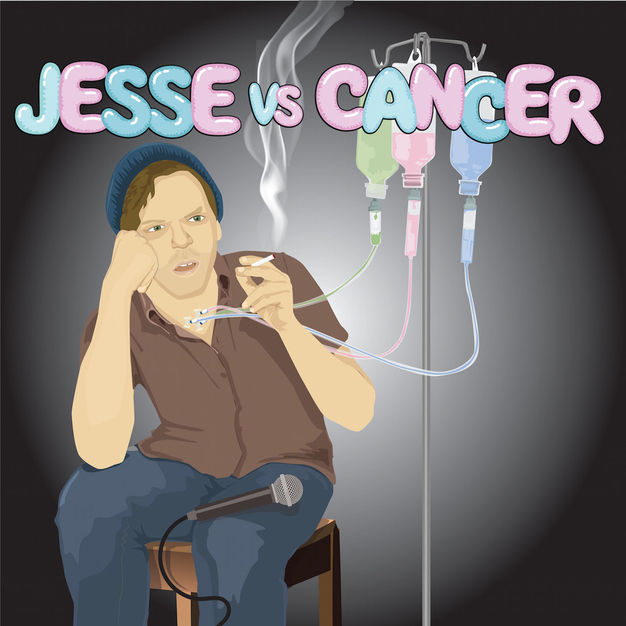 Jesse vs Cancer
Jesse vs Cancer
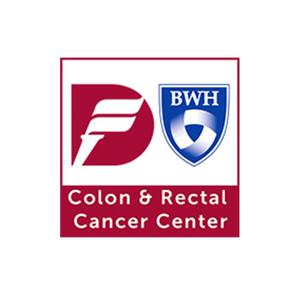 How We Treat: Colon and Rectal Cancer
How We Treat: Colon and Rectal Cancer
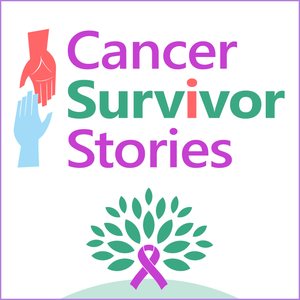 Cancer Survivor Stories - Real life inspirational stories of cancer survival.
Cancer Survivor Stories - Real life inspirational stories of cancer survival.
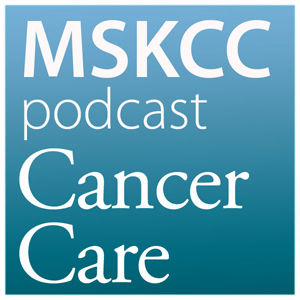 Cancer Care Podcast | Memorial Sloan Kettering Cancer Center
Cancer Care Podcast | Memorial Sloan Kettering Cancer Center
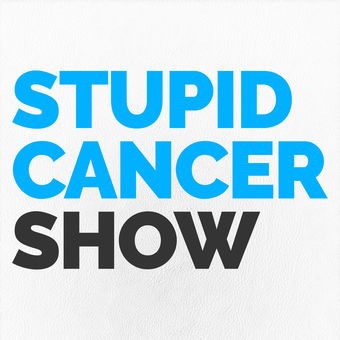 The Stupid Cancer Show
The Stupid Cancer Show
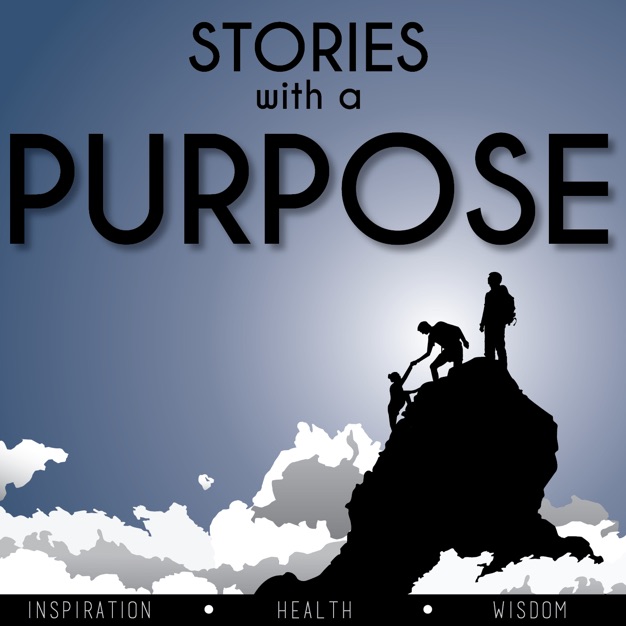 Stories With A Purpose | Inspiration | Health | Wisdom
Stories With A Purpose | Inspiration | Health | Wisdom